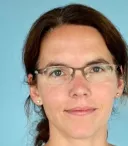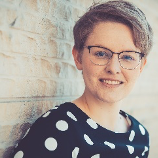Smart City & E-Government
Track description
Public administrations are exposed to a variety of challenges. Digital transformation is one such challenge and at the same time is considered a solution for others. The current crisis illustrates the strengths and weaknesses in the progress of e-government particularly impressively. At the same time, it could act as the catalyst that has been sought for years - especially with regard to internal administrative activities that other drivers such as the Online Access Act do not address. The crisis is also intensifying the debate about Smart City and Data-Driven Governance. Monitoring, analysis and decision-making are based on extensive, integrated data from a wide range of sources. Collaboration between different players - both local and cross-divisional - is a prerequisite for rapid progress in e-government. Open Government also includes external actors with diverse backgrounds.
Possible topics
We therefore particularly, but not exclusively, welcome interdisciplinary contributions on the following topics:
- Smart City - actors and governance
- Smart City maturity levels
- Projects, platforms and applications in the Smart City context
- Effects of Smart City
- Liveability & quality of life in the Smart City
- Citizen participation in the Smart City
- Smart Towns: Digital concepts for small and medium-sized cities
- Data-Driven-Government
- Open Data and Open Government
- Digital sovereignty & trust management
- Reception of digitization trends (e.g. Blockchain, RPA, Smart City)
- Transformative effects of digitization in the public sector
- Transformational Government & Innovation Management
- E-Government Strategies
- Online access law: implementation, potentials, problems
- E-Government, Smart City and the Corona Crisis
Track Chairs

Moreen Heine is Professor for E-Government and Open Data Ecosystems at the Institute for Multimedia and Interactive Systems at the University of Lübeck. Previously she was assistant professor for Digital Government at the University of Potsdam. She is also the scientific director of the Joint Innovation Lab in Lübeck, which designs, develops and evaluates innovative solutions for the public sector in close cooperation between science, administration and business.
She conducts research on human and process-oriented applications in the public sector. This includes classic e-government applications, but also applications in the context of open government. Moreen Heine is involved in the board of the National E-Government Competence Center (NEGZ).

Bettina Distel is a PostDoc at the Institute for Information Systems at the Westfälische Wilhelms-Universität Münster, where she also received her doctorate in 2018. Her research interests include the digitization of public administration. Her work focuses on the human factor and the effects of digitization on citizens as well as employees and managers within the administration. A further research focus is the topic of 'trust', especially in the context of public administration and with regard to the relationship of users to providers and technology. Bettina Distel is a member of the NEGZ and the Competence Center E-Government of the European Research Center for Information Systems.
Associate Editors
- Dian Balta, Fortiss München
- Prof. Dr. Christian Djeffal, Technische Universität München
- Sebastian Halsbenning, Universität Münster
- Dr. Constantin Houy, Deutsches Forschungszentrum für Künstliche Intelligenz
- Peter Kuhn, fortiss München
- Christian Østergaard Madsen, PhD, IT University of Copenhagen
- Prof. Dr. Peter Parycek, Donau-Universität Krems und Kompetenzzentrums Öffentliche IT
- Dr. Hendrik Scholta, Universität Münster
- Basanta Thapa, Kompetenzzentrum Öffentliche IT
- Dr. Edzard Weber, Universität Potsdam